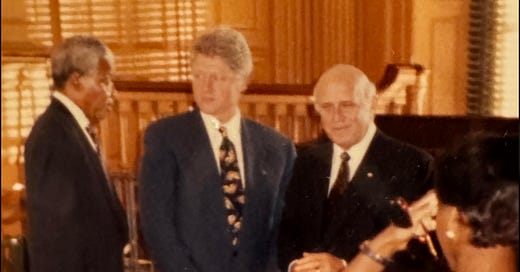Elections 2024: South Africa
The results are rolling in, and Nelson Mandela’s party is navigating deep waters as his nation votes.
Continuing our pledge at Andelman Unleashed to report and comment on every national election everywhere in the world, this week we have South Africa….
Early indications are that the unassailable hold of the party formed by Nelson Mandela at the end of the apartheid era and that has held an absolute majority in Parliament, hence its grip on the presidency…
Keep reading with a 7-day free trial
Subscribe to Andelman Unleashed to keep reading this post and get 7 days of free access to the full post archives.



